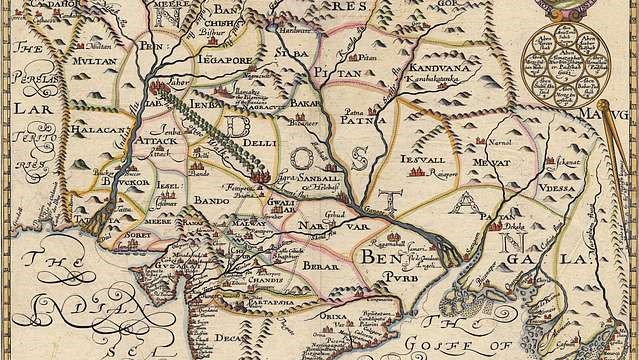In the nineteenth century, European nations diffused their influence beyond the borders of their colonial empires. In the Ottoman Empire, the transplantation of the European legal systems by local institutions was often preceded by semi-colonial institutions in which Europeans (and sometimes, certain segments of the local population) could place themselves outside the reach of local courts. In their recent paper, The Demand for Extraterritoriality: Religious Minorities in Nineteenth-Century Egypt, Mohamed Saleh and Cihan Artunç examine why a segment of Egyptian non-Muslims chose to place themselves under these semi-colonial institutions. Their results indicate that legal certainty in contracting, rather than efficiency, motivated their choice to adopt European law.
In the Ottoman Empire, the transplantation of European legal systems towards the end of the nineteenth century was preceded by a semi-colonial institution known as a capitulation, under which Europeans were subject to their own home jurisdictions. In nineteenth century Egypt, the option of extraterritoriality was extended to local non-Muslims on a case-by-case basis. Egyptian non-Muslims could individually acquire legal protection from European consuls. If granted, these Egyptians became ‘protégés’: pseudo-European nationals with extraterritorial privileges. Legal protection removed protégés from the reach of state courts and placed them under the jurisdiction of consular courts. This created an unusual situation, where a small portion of the population was able to opt into their preferred legal system. This context allows the authors to understand what determined the preferences over different legal regimes.
They focus on two possible theories for legal adoption. The first is the legal quality hypothesis. The legal quality hypothesis views acquiring the protection of a European consulate as a flight from local laws to the more effective business organization rules of European laws. This hypothesis implies that, absent the prohibition of adoption, a sizable proportion of local non-Muslims, especially those in commerce and finance, would opt out of the Egyptian system. It also implies a hierarchy among European jurisdictions. Some countries’ legal rules might provide better enterprise forms, financial techniques, or litigation practices than others.
The second is the legal uncertainty hypothesis. It explains the demand for legal protection through improvements in contractual credibility in an environment where multiple legal systems coexisted. The European consular courts had competence over commercial and civil affairs involving their nationals. With more than fifteen overlapping jurisdictions, this framework led to considerable uncertainty about which law would apply to contracts involving Europeans and locals. One way to grapple with this uncertainty was to become a protégé of the other contracting party’s consulate, which placed both contracting parties under the same law. This hypothesis implies that only local non-Muslims who were involved in contractual relationships with Europeans were likely to demand European legal protection. Under this theory, it is not the substantive content of the law but proximity to others under its jurisdiction that decides the take-up.
To investigate these hypotheses, the authors use a novel data source: Egypt’s individual-level population census samples of 1848 and 1868 that were digitized from the original Arabic manuscripts at the Egyptian archives by Mohamed Saleh.
The census records show that only a modest 600-1000 protégés were active in Egypt between 1848-68. There was no mass flight out of state courts, even among local non-Muslims active in enterprise. The data also do not show a clear hierarchy of legal regimes. Business-friendly reforms instituted by various European countries were not followed by an increase in demand by would-be protégés. This macro-evidence thus does not support the legal quality hypothesis.
Rather, occupational and spatial networks were critical determinants of how legal protection expanded. As Europeans became more prominent in an occupation or neighbourhood, more local non-Muslims sought to become protégés. A one-standard-deviation rise in the proportion of Europeans in the occupation doubled the probability of becoming a protégé among local non-Muslims. Given the small number of observations, it is more difficult to investigate whether they adopted the same legal systems as their European neighbours. There is suggestive, but inconclusive, evidence that protégés selected into the polity of their European neighbours.
As highlighted by the data, the proliferation of European consular courts with overlapping jurisdictions caused uncertainty about which law would apply and in which court a case would be heard. In contradiction to the legal quality hypothesis, no legal system emerged to become the main courts ruling over commerce. This was only effectively resolved by a comprehensive reform: the creation of the Mixed Courts in 1875. But until then, as Mohamed Saleh and Cihan Artunç show, local non-Muslims chose European courts when business and proximity, or contractual relationships with Europeans more broadly, made it opportune, not because of the inherent relative efficiency of European laws over local institutions.
Read the article in full here: The demand for extraterritoriality: Religious minorities in nineteenth-century Egypt, Cihan Artunç, Mohamed Saleh, Economic History Review, 2023, doi/10.1111/ehr.13302




